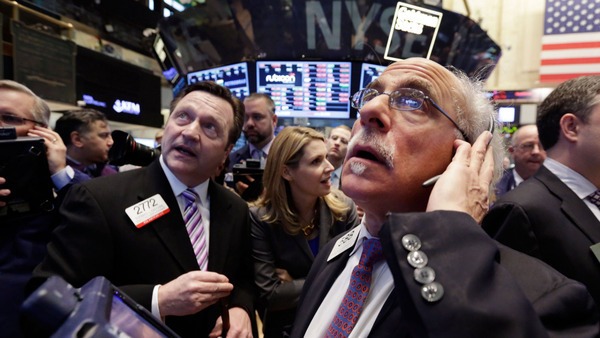On Friday, Domino’s Pizza, Inc. (NYSE:DPZ)’s shares declined -4.83% to $109.99.
Domino’s Pizza, Inc. (DPZ), the recognized world leader in pizza delivery, declared results for the second quarter of 2015, comprised of strong same store sales results and store count growth, which resulted in robust EPS growth. Domestic same store sales grew 12.8% during the quarter as compared to the year-ago period, ongoing the positive sales momentum in the Company’s domestic business. The international division also posted strong results with same store sales growth of 6.7%, marking the 86th successive quarter of international same store sales growth. The Company had global net store growth of 186 stores in the quarter.
Dominos Pizza, Inc., through its auxiliaries, operates as a pizza delivery company in the United States and internationally. The company operates through three segments: Domestic Stores, Supply Chain, and International Franchise. It offers pizzas under the Domino’s Pizza brand name through company-owned and franchised Domino’s Pizza stores. As of June 8, 2015, the company operated about 11,700 stores in about 75 international markets. Domino’s Pizza, Inc. was founded in 1960 and is based in Ann Arbor, Michigan.
FuelCell Energy Inc (NASDAQ:FCEL)’s shares dropped -0.04% to $0.915.
FuelCell Energy Inc (FCEL) came up short of most expectations when it stated second-quarter financial results on Tuesday. The highlights:
- Revenue of $28.6 million, down 25.3% from last year’s second quarter.
- Gross profit rose by 25% and gross margin was up 69%.
- Net loss fell from $16.6 million to $10.4 million, a strong improvement.
So sales were down, but the profitability metrics improved, even if the company is still losing money. Let’s dig deeper into the hydrogen fuel cell specialist’s results.
FuelCell Energy has many irons in the fire and could get some pretty major deals done in the coming year, but frankly, the second quarter’s improvements came alongside worrisome declining sales and a shrinking pipeline of future results.
If investors want to continue chasing the so-far elusive profits of the hydrogen revolution, they should go ahead. But until the company inconsistent shows it can be — and remain — profitable, this investor will remain firmly on the sidelines.
FuelCell Energy, Inc., together its auxiliaries, designs, manufactures, sells, installs, operates, and services stationary fuel cell power plants for distributed power generation. The company is also involved in the development, design, production, and sale of fuel cell products under the Direct FuelCell name. Its power plants electrochemically produce electricity and heat using various fuels, counting natural gas, methanol, diesel, biogas, coal gas, coal mine methane, and propane.
At the end of Friday’s trade, Clean Energy Fuels Corp (NASDAQ:CLNE)‘s shares dipped -2.31% to $5.91.
Clean Energy Fuels Corp. (CLNE) declared it will release financial results for the second quarter of 2015 on Wednesday, August 5, 2015 after market close, followed by an investor conference call at 4:30 p.m. Eastern time (1:30 p.m. Pacific). President and Chief Executive Officer of Clean Energy Andrew J. Littlefair and Chief Financial Officer Bob Vreeland will host the call.
Clean Energy Fuels Corp. provides natural gas as an alternative fuel for vehicle fleets in the United States and Canada. It designs, builds, operates, and maintains fueling stations; and supplies compressed natural gas (CNG) fuel for light, medium, and heavy-duty vehicles, in addition to liquefied natural gas (LNG) fuel for medium and heavy-duty vehicles.
AFLAC Incorporated (NYSE:AFL), ended its Friday’s trading session with -1.01% loss, and closed at $61.59.
AFLAC Incorporated (AFL) declared that it has hired Frederick J. Crawford as executive vice president and chief financial officer, reporting to Aflac Chairman and Chief Executive Officer Daniel P. Amos. In his new role, which will be effective June 30, 2015, Crawford will be responsible for overseeing the financial administration of company operations.
As formerly declared, Kriss Cloninger III will remain as president of Aflac Incorporated, with a particular emphasis on capital and planned planning, in addition to assisting the company grow the business while ensuring solid profitability. Cloninger will also be working closely with Crawford as he assumes the chief financial officer role.
Aflac Incorporated, through its partner, American Family Life Assurance Company of Columbus, provides supplemental health and life insurance products. It operates through two segments, Aflac Japan and Aflac U.S. The Aflac Japan segment offers various voluntary supplemental insurance products, counting cancer plans, general medical indemnity plans, medical/sickness riders, care plans, living benefit life plans, ordinary life insurance plans, and annuities in Japan.
DISCLAIMER:
This article is published by www.wsnewspublishers.com. The Content included in this article is just for informational purposes only. All information used in this article is believed to be from reliable sources, but we make no representations or warranties of any kind, express or implied, about the completeness, accuracy, or reliability with respect to this article.
All visitors are advised to conduct their own independent research into individual stocks before making a purchase decision.
Information contained in this article contains forward-looking information within the meaning of Section 27A of the Securities Act of 1933 and Section 21E of the Securities Exchange Act of 1934, counting statements regarding the predictable continual growth of the market for the corporation’s products, the corporation’s ability to fund its capital requirement in the near term and in the long term; pricing pressures; etc.
Any statements that express or involve discussions with respect to predictions, expectations, beliefs, plans, projections, objectives, aims, assumptions, or future events or performance may be forward looking statements. Forward-looking statements are based on expectations, estimates, and projections at the time the statements are made that involve a number of risks and uncertainties which could cause actual results or events to differ materially from those presently anticipated. Forward looking statements may be identified through the use of such words as expects, will, anticipates, estimates, believes, or by statements indicating certain actions may, could, should might occur.



